|
|
|
#1 |
|
Avalon Senior Member
Join Date: Sep 2008
Posts: 947
|
The discovery of the Phoebe ring (artist's impression pictured) of Saturn, hundreds of times larger than the planet's radius, is announced.
 Phoebe ring Illustration of extent of the Phoebe ring which dwarfs the main rings. On 6 October 2009, the discovery was announced of a ring that is not in the same plane as the other rings, but in the plane of Phoebe's orbit, which is tilted 27 degrees from Saturn's equator. The ring extends from 128 to 207 times the radius of Saturn; Phoebe orbits the planet at an average distance of 215 Saturn radii. The ring is also very thick, being about 20 times as thick as the diameter of the planet. Since the ring's particles are presumed to have originated from Phoebe (being released by meteoroid impacts), they should share its retrograde revolution, which is opposite to the orbital motion of the next inner moon, Iapetus. Inwardly migrating ring material would thus impact the latter's leading hemisphere, possibly causing the two-tone coloring of that moon. Although very large, the ring is tenuous and virtually invisible—it was discovered using NASA's infra-red Spitzer space telescope. The existence of the ring was proposed in the 1970s by Joseph Burns of Cornell University. Possible ring system around Rhea Saturn's second largest moon Rhea may have a tenuous ring system of its own consisting of three narrow bands embedded in a disk of solid particles.These rings have not been imaged, but their existence has been inferred from Cassini observations in November 2005 of a depletion of energetic electrons in Saturn's magnetosphere near Rhea. The Magnetospheric Imaging Instrument (MIMI) observed a gentle gradient punctuated by three sharp drops in plasma flow on each side of the moon in a nearly symmetric pattern. This could be explained if they were absorbed by solid material in the form of an equatorial disk containing denser rings or arcs, with particles perhaps several decimeters to approximately a meter in diameter. However, not all scientists are convinced that the observations were caused by a ring system. A more recent piece of evidence supporting the presence of Rhean rings is a set of small ultraviolet-bright spots distributed in a line the extends three quarters of the way around the moon's circumference, within 2 degrees of the equator. The spots presumably represent the impact points of deorbiting ring material. |
|
|

|
|
|
#2 |
|
Avalon Senior Member
Join Date: Sep 2008
Location: Australia
Posts: 2,570
|
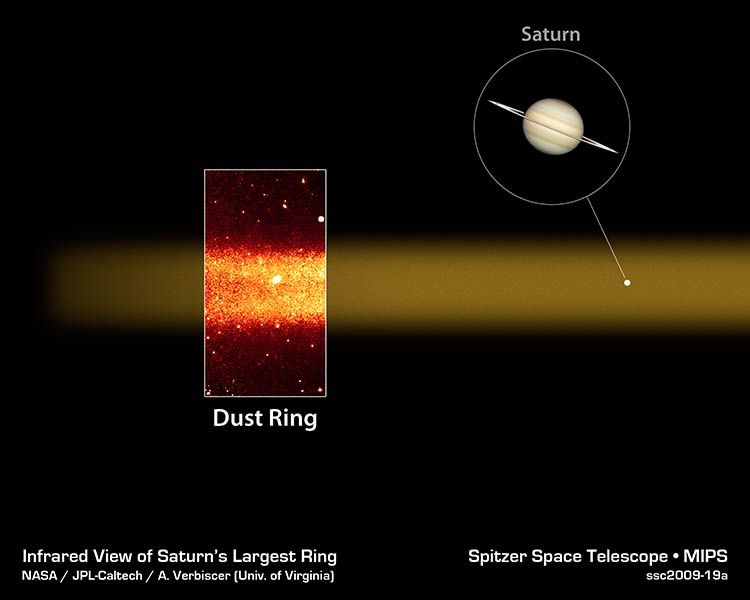 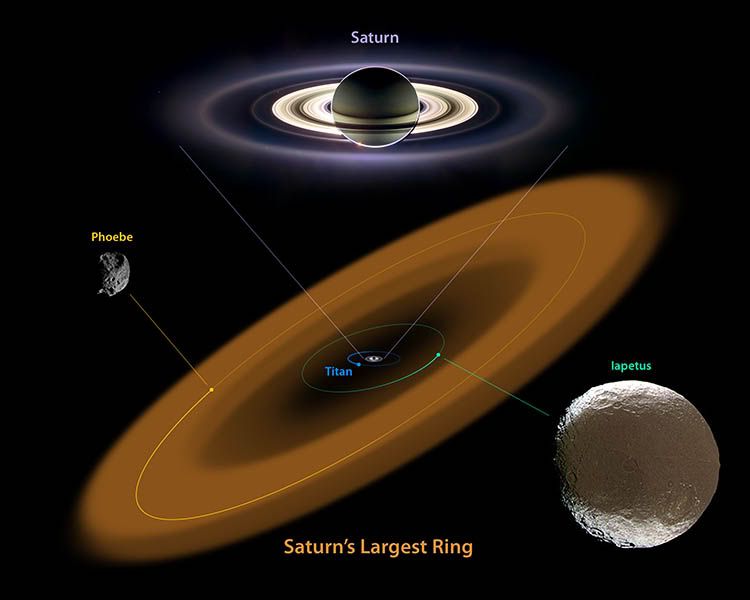 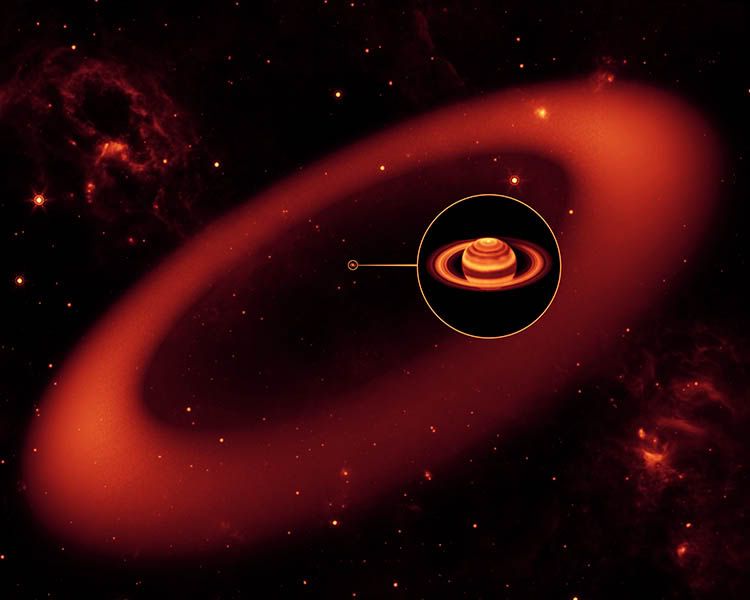 Thanks for the update. Big news! Here's some more: http://www.spitzer.caltech.edu/Media.../release.shtml http://www.sciencedaily.com/releases...1006205610.htm http://www.nasa.gov/mission_pages/sp...20091007a.html And for basic re-familiarisation of the Saturnian system here is a pic: 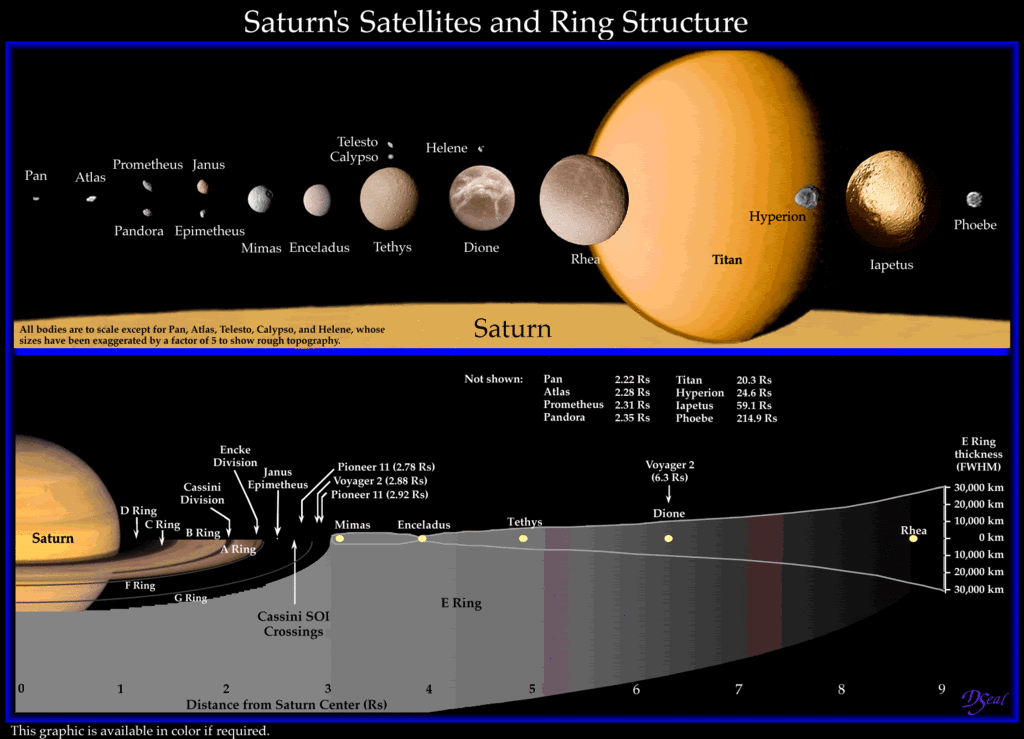
|
|
|

|
|
|
#3 |
|
Avalon Senior Member
Join Date: Sep 2008
Location: Australia
Posts: 2,570
|
Here is a new shot of IAPETUS too!
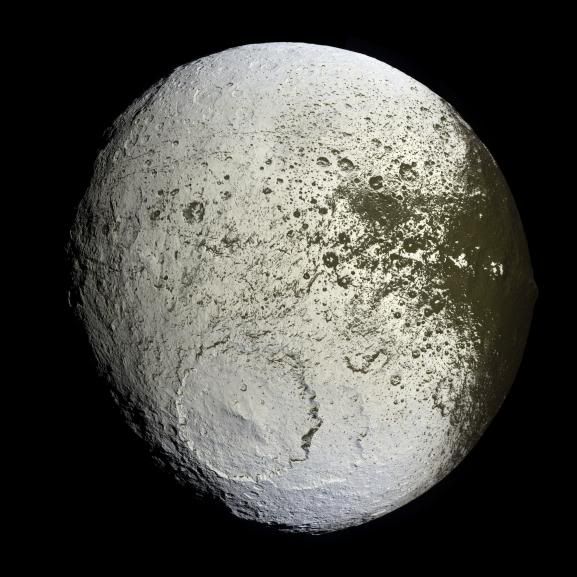
|
|
|

|
|
|
#4 |
|
Avalon Senior Member
Join Date: Sep 2008
Location: Australia
Posts: 2,570
|
Does this mean Saturn has the largest MAGNETIC FIELD of all the planets I wonder ?
|
|
|

|
 |
«
Previous Thread
|
Next Thread
»
|
|
All times are GMT. The time now is 06:23 PM.



 Linear Mode
Linear Mode

